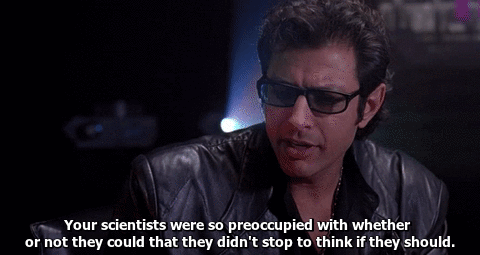On a recent sunday afternoon, under very un-Dutch weather conditions (tropical), my wife and I celebrated our 12.5 years of marriage. In this day and age, this is not the standard, so we thought it would be a great reason for a party. Now, parties like this are a great opportunity to reconnect with people you don’t get to see that often, but of course time flies by and at the end of the evening there are still so many people you did not get to really talk to.
The most important gatekeepers
Years ago this was the fundamental promise of social media: to stay up to date on what’s happening with people you don’t talk to day by day. But today, the experience is very different. What happened? For one, as a ‘content producer’, a sharer of news, you have some influence on who you target with your message (i.e. the former Google+ Circles, or the Facebook Post Visibility), but in most cases the process of setting this preference is cumbersome at best. Second, it’s become all about image. Post the positive, use the pretty filter, and create high expectations and FOMO with your audience. Third, commerce happened. Both companies and people trying to profile themselves started increasing their connections to create more visibility for themselves. And ofcourse, the social media companies themselves had to start making money at some point. The online ad-market happened. Many more social media companies emerged, each with their own specific niche. And so our experience changed from a cosy chatbox with people we know to a firehose of content that is impossible to keep track of.
Don’t get me wrong, I love the idea of social media, and as an entrepreneur myself I can relate to companies wanting to make a buck. But I fear we have gone in the wrong direction. A winner take all mentality has overridden the common sense to think about the desirability on the long run.

And so the big tech companies have gotten too much power and they will not hesitate to use it. This is not the web how the inventors had ment it. We went from blogs with pingbacks to centralized discussions on Facebook or Twitter. Today, Apple, Amazon, Facebook and Google are the most important gatekeepers to our life online. The result is that we are nudged or persuaded if not coerced to interacting with companies or people that we did not set out to in the first place. Which is great if you’re in the dating market, swipe to your hearts desire. But our personal time is the one thing that is truly scarce, the one thing that can never be replaced.
It is no longer just about connecting people, but about influencing our minds
What’s worse, in addition to ‘stealing’ our time, these technologies can steal so much more. Because if my Youtube suggestions are becoming more radical with every click (Dutch), it is no longer just about connecting people, but about influencing our minds, hindering our ability to stay open to other opinions. We need to keep pushing our own critical thinking and look for the other side of the debate. Because on Youtube you’ll find lots of video’s promoting flat earth theory, and very few debunking them. Each step takes the users deeper in to their own bubble, nudging or even radicalising their thoughts and ideas.
Simply not using all of these platforms is not a solution right now. We are more than ever hyperconnected in this online society, and closing the floodgates is not easy. Some people simply have no other way of communicating with each other, and companies do still have to find a way to their customers. I too like to spend (some of) my time on Youtube, Netflix, Twitter etc. They can be powerfull tools. But powerfull tools might just need safety-goggles.
So where to go from here? I believe there is a moral obligation for us as entrepreneurs, technologists, designers, to create technology that enhances our humanity, rather than strip from it, and to help us save time, instead of consuming as much of it as possible. How do we do that? First of all, consumers need to know the problem so they can opt-out of the bubble. Second, we need good alternatives. We need platforms that can work together, rather than compete. We need better data ownership models. Who controls the data you generate, and what can they do with it? The talks about decentralisation have gone on for quite some time, but we still need good solutions for onboarding non-technical people, because today’s user has grown accustomed to great user experiences.
For a better tomorrow we need to solve these things.
Even though I studied computer science back in the day, I grew a business in the telecom sector. Funny thing is, the way our products are now evolving we’re looking much more like a platform/software as a service business really, but I do try to take the good aspects of telecom along for the ride. Things like standardisation to enable cross-network communication for instance.
Looking to the big tech companies for a solution is not going to cut it when we want to adress these problems. Taking matters in to your own hands and selecting a European provider of even actually self-hosting some elements will certainly help. Initiatives like Solid need more work but offer promising concepts. And deep-diving in to your online identity (or is it identities?) is certainly the next level.
I for one, plan to spend more time on things like decentralisation, interconnecting platforms, and managing user identities in a highly heterogenous environment.
What will you do? I’d love to hear from you.